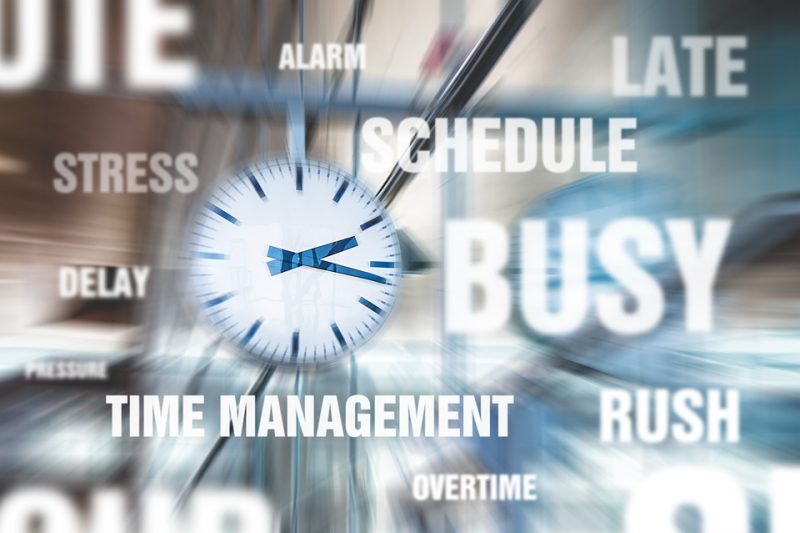
Work-life balance: some insights from a Master student with several side-job(s)
The spring has officially begun in Sweden, meaning that many students both inside & outside the country got some exciting news about being enrolled in their (hopefully!) dream Global Master & Bachelor Programmes at KI (whoop-whoop!).

I was finishing my Erasmus exchange in Heidelberg when I received the news about getting admitted to the Master’s Programme in Nutrition Science at Karolinska – my first choice!❤️
When I received such news back in April 2018, I was very happy & accepted the offer without any major hesitations. I also wanted to continue studying in Karolinska (I was about to graduate from the Bachelor Programme in Biomedicine at that time) because of its EXCELLENT & FREE (for the EU-students!) education. However, I have decided that “the time has come” to stop relying on my parents for money & start financing myself solely by… myself? This decision resulted in me signing up for the 3 (!!!) part-time jobs? simultaneously! Was it a smart thing to do? Let us find out below⬇️

First days of the Programme I was still feeling VERY motivated & full of energy, unlike a couple of weeks later…
Intro to adult life: to work or not to work?
Even if you pay no tuition fees for the higher education in Sweden (being a Swedish or other EU country citizen), there are still quite a few things like rent (housing), travel card(s), food and other living costs and expenses that the student here has to pay from his/her own pocket unless still being “sponsored” by the parents or having received some kind of scholarship. And here comes the tricky part: depending on your skills/previous work experience, you might not be able to cover all of them with just one occasional part-time job (at least I didn’t manage to). So, what needs to be noted here?
Define your priorities
This point is by far the most important one. Many students have probably been trying for several years to get admitted to KI, others have already made good academic/professional progress by the time they’ve applied, hence the success from the “first try”. Nevertheless, Karolinska Institutet is a very cool and prestigious place to obtain your degree from so you might want to dedicate most of your time to studies once you get in, and to try to make the best out of it (especially out of 1 year Master’s Programme like mine). Therefore, planning some stuff ahead wouldn’t hurt: some of my classmates have been working for 1-2 years to save up some money to be able to fully focus on the study programme when “the time comes”. I didn’t have such forward-looking approach so my main message would be: even if you have to work to finance yourself during the studies, try to remember why did you enrol yourself in this programme, and how can optimize your work to remain a decent student (SPOILER-alert: personally, I found it harder than I thought).

This is how it “work-uni-work-work-assignment-uni-work” life feels like
Do your *job* research!
Okay, so you already know you will need to work some during the studies. What kind of jobs can you apply for? Understandably, many students would prefer working with something linked with their main professional field/area of expertise. Given that KI is a medical university, it might be medicine, pharmacy, biomedical research or something similar. But hey – here comes the BUMMER! – even if you’re a first-class doctor, a skilled researcher or nurse, you might not be able to start working as such, as one needs to “confirm” a doctor’s/nurses license, the research groups often do not have some additional funding to hire a student, and official jobs at KI of, let’s say, lab technician, are highly competitive (and the chances to get one quickly without knowing someone from the group personally/haven’t worked there before are rather low).
C’EST LA VIE
Therefore, more simple “student jobs” will probably be the ones you could apply for. Our previous Digital Ambassadors wrote some good blog-posts about it, so do check it out! From my side (a side of a non-Swedish speaking but very enthusiastic job-seeker), I’ve identified several options:
- Babysitting or tutoring (not for everybody cause you need to love, or at least tolerate kids :D). Kids Connection or NannyNu are some good options for Mary-Poppins-like ladies (or gentlemen?…), and StudyBuddy or MyAcademy are for those who would be better off explaining things for older children/teenagers. OBS! For this job, depending on the family and their needs means that your income can be irregular, and rather small. For example, I worked as a babysitter for ca.3 hours 2-3 times a week after uni and would earn around max. 3000 SEK/month (after taxes).
- Personal assistant for disabled or elderly people (like Humana) can be more “profitable” (4-5 night or weekend shifts/month) and you are at around 5000 SEK covering your living costs nicely. Draw-back: can be emotionally hard for some and also physically demanding (if doing night shifts). Still, such a job allows for combining studies with a more-less stable income.
- Restaurants/bars could become a place to earn some during the evenings or weekends, but it might be tricky to get a job in a service sector without speaking Swedish (which the majority of the newly admitted international students don’t). Nevertheless, one can always go & try to talk to the personnel in different English/Irish pubs (where the knowledge of English might be sufficient) or try to reach out to your national food places (there are plenty of restaurants with cuisines from all over the world here in Stockholm, so plenty of opportunities here I believe!). I also almost got a job at the vegan restaurant once, so just keep looking!
- Becoming a KI Digital Ambassador is an absolutely amazing way to earn some money while having a lot of fun! One of the best aspects of this position that I truly love is the flexibility – depending on how much time you have, you can blog/vlog/work more one month and less – the other. You also meet a lot of cool people and “earn” a nice line in your CV! It’s a decently paid, official KI job, but the competition for becoming the next KI Digital Ambassador (DA) is rather high.
- Lastly, you can keep an eye on the website for the English-speaking jobs like this one, or become a part of some science experiments (not a regular income though), or try to see if someone would be interested in learning your language!

It somewhat is 😀
OK, you got a job (or 2…) what’s next?
I want to be raw and honest here, balancing out the studies in such a short yet intense (in my opinion) Master’s Programme at KI like Nutrition Science, and working enough hours to sufficiently cover all of your living costs is not easy. Already in September (aka exactly when my Master’s started also :D) I continued working some as a babysitter, signed up to be a tour guide, and did my first night shift as a personal assistant. I was still managing quite well with my university assignments and made it for almost all the lectures. However, in October, when I took more night shifts, started blogging and had some training as DA, as well as had to deliver my first take-home exam (this is how we roll in my Master’s!), I started feeling like this whole thing is getting slightly … out of hand

Pretty much so 😀
Long story short: me trying to juggle 3 (or 4 at times…) part-time jobs in different places AND doing my Master’s simultaneously ended up in me failing one of the courses and not being able to proceed with a degree project in the spring semester (which is OK) and almost having a major mental breakdown (which is not OK). Whereas taking a free-term and completing the remaining courses next year is an “alright” thing to do (in my opinion), sacrificing your physical and mental health for the sake of good grades or earning money is not alright❌
Looking back I can identify several things I was clearly doing wrong, and want to give some pieces of advice for the future “full-time students who also work”:
- GET. ENOUGH. SLEEP. I know, it’s easier said than done, but getting some decent 7-8 hours of sleep is so, SO important be able to push through your studies, work, and life in general. Whereas working night shifts might seem attractive in terms of pay, make sure you don’t do it often, and also build your day plan ensuring that the PRICELESS sleeping hours are there, scheduled & prioritized.
- Do sports, go to nature, spend time with friends. Again, this might seem like a bit of generic advice, but it’s hard to underestimate the amount of happiness, laughter and positive emotions that a simple 40-min gym session, a walk by the water or a cosy fika with a friend can add to your life if squeezed in-between your study- and work sessions. Trust me, these☝️are the little things that make life worth living.
- Relax, stay positive & learn along the process. Obviously, it would be ideal to just be able to focus 100% of your time to studies, and only do fun stuff on the weekend. However, the will/need to work along with studying at the university can easily take most of these “chill moments” away from you, so it becomes essential to learn to relax in these – often rare and short – moments (see 2.), and also remember that this hectic period of your life is just a phase. It will pass soon, believe me. But while it is is still going on & seems overwhelming at times, remaining positive while learning about yourself, your capacities, needs and limits is also a great “life lesson” that can teach you a lot. So keep learning!?❤️?

We got this!✌️
Questions? Email me at dasa.svaikovskaja@stud.ki.se

0 comments